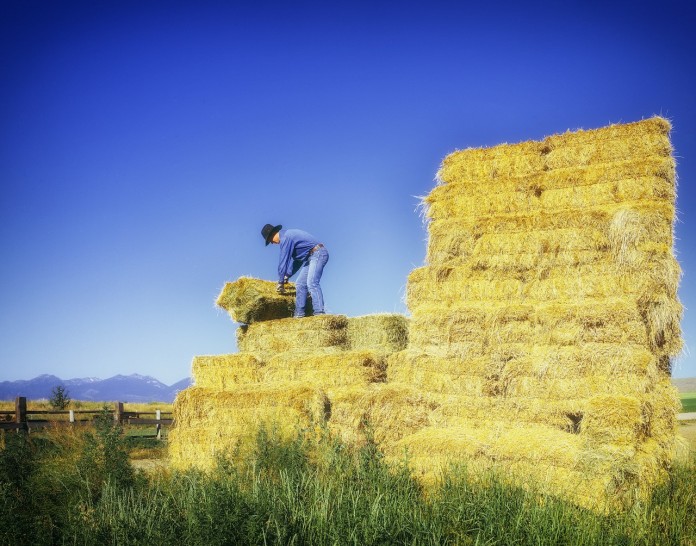Virtually all employees engaged in agriculture are covered by the Fair Labor Standards Act. However, some small farm operations and those with mostly family labor may be exempt from minimum wage and overtime pay provisions of the Act.
1Working conditions
Every agriculture employee must receive information about the working terms and conditions of the job. A contract of working terms and conditions should include work location, the time period the work will cover, type of work including crops to be harvested, wage rates, benefits (such as housing or transportation), whether workers compensation or state unemployment insurance is provided, and any other working terms and conditions.
An employer is only required to provide a written contract of terms and conditions if the worker does not live in the area permanently or if the worker requests a written copy of the contract.
2Pay
Employers must keep an accurate record of all employees’ work time — including travel between fields, waiting on equipment fixes, or work breaks — and must pay employees the correct wages for all hours that they work.
The federal minimum wage is $7.25 per hour — for Ohio employers with annual gross receipts of $297,000 or more minimum wage is $8.10. The employer is required to pay overtime if the employee performed non-agricultural work and worked over 40 hours in that workweek.
3Exemptions
The Fair Labor Standards Act does provide exemptions for minimum wage and overtime for agricultural employers.
Agriculture work is exempt from overtime under federal labor law. This does not include work performed on a farm that is not in conjunction with the farming operation and does not include operations performed off a farm if performed by employees employed by someone other than the farmer whose agricultural products are being worked on.
Additional exemptions include:
- Employees who are immediate family members.
- Those principally engaged on the range in the production of livestock.
- Local hand harvest laborers who commute daily from their permanent residence, are paid on a piece rate basis in traditionally piece-rated occupations, and were engaged in agriculture less than 13 weeks during the preceding calendar year.
- Non-local minors, 16 or under, who are hand harvesters, paid on a piece rate basis in traditionally piece-rated occupations, employed on the same farm as their parent, and paid the same piece rate as those over 16.
4Transportation and housing
If employers provide transportation or housing opportunities, they must be safe and sanitary. Transportation vehicles must have a separate seat for each passenger, seats must be secured to vehicle, windows and doors should not be broken and function properly, adequate ventilation and heating for cold months is necessary, and brakes, lights, turn signals, horns, etc., should be in working order.
If housing is provided, living quarters should include a bed for each worker, hot and cold running water, heat for cold months, functioning windows, screen doors, adequate lighting, sanitary bathroom space and kitchen area to store food, no signs of rodent, pest or insect infestations, a first aid kit and fire extinguisher.
5
In the fields
Employers who hire 11 or more workers throughout the year to do hand labor in the fields may be required to provide drinking water and other facilities.
Clean drinking water and one clean drinking cup per employee must be provided free of charge. If workers are in the fields for more than three hours (including travel to and from fields), employers must provide one toilet and one hand washing station for every 20 workers (if there are 21 workers, two stations are needed).
Note: This is not a complete list of labor requirements for agriculture. For more information visit dol.gov.
(Farm and Dairy is featuring a series of “101” columns throughout the year to help young and beginning farmers master farm living. From finances to management to machinery repair and animal care, farmers do it all.)
More Farming 101 columns:
- 4 tips for employing minors
- 4 tips for PTO safety
- 5 things young farmers should know about finances
- The farm balance sheet
- 5 items for your farm’s cash flow statement
- Personal and business records: Keep them separate
- What to include in your farm business plan
- How to approach a lender: Tips for getting a farm loan
- How to use microloans to get your farm started
- Saving for the future: 6 tips for young farmers
- How to create a farm safety kit
- 5 tips for child safety on the farm
- 4 tips for transporting livestock
- 5 ways to better understand tractor stability
- 6 farm equipment hacks












Hi im a weigh master for agriculture, weighing trucks carring silage for ranches and farmers my question is i take my own vehicle to our work sites is my employer responsible for my travel time and fuel.to get the job sites?
my son worked 100 + hours at a dairy farm in IN. They did not pay him over time. Are they required too. I guess they dont pay any of there imployees over time. Most of the employees dont hve green cards so the employer is able to get away with it. My son on the other hand has an ss card and was born in the here. So what should e do in this matter.
Great post!